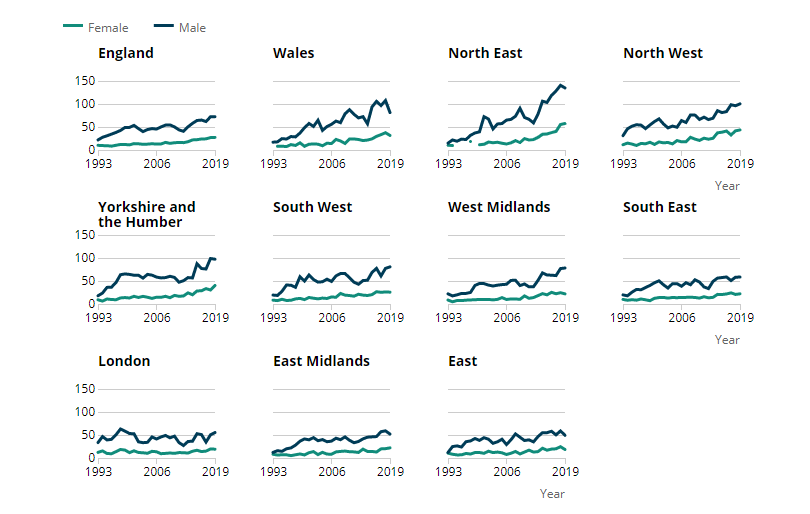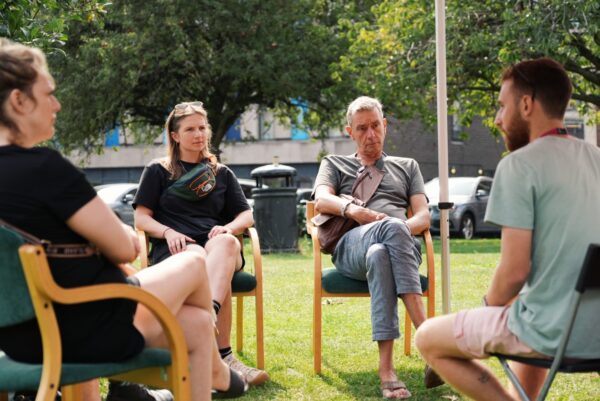14.10.20
3 minute read

This morning, 14.10.20, the ONS published ‘Deaths related to drug poisoning in England & Wales: 2019 registrations’
This is complex data – as it shows deaths registered in a time period, not deaths which occurred then, and as there can be delays of months, sometimes years, in registering deaths it doesn’t give an accurate picture of deaths year on year.
Its main value is in showing trends over time – so we are at an all-time high in deaths related to drug poisoning since records began in 1993, though the rate in England between 2018 and 2019 has slowed. Strikingly, deaths related to cocaine use have risen for the 8th year in a row – with 12.3 deaths per million population due to cocaine or crack cocaine use.
Registration of drug poisoning deaths related to drug misuse increased by 3.3% in the South West region between 2018 and 2019. A number of areas in our region saw falls in registered deaths; Bristol’s sadly increased by 10.8% but a rate of increase much lower than Wiltshire & B&NES, and in turn much lower than areas of the North East and North West. This is tragically an area where a North/South divide is flourishing.

Maggie Telfer, CEO of Bristol Drugs Project, said:
“The last national count showed that Bristol has the 8th highest rate of heroin use per thousand population in England and the highest rate per thousand people for crack cocaine use. With that profile, we could expect drug-related deaths to be running at very high levels in our city.
Every death is a personal tragedy for their loved ones, and for our staff and volunteers who have often worked with people for many years, but we believe that Bristol City Council’s treatment services are protecting Bristol’s citizens from far higher numbers of deaths. Evidence shows that opioid substitution treatment reduces deaths from heroin use and Bristol has one of the largest populations in England who benefit from this – with over 1800 people at any time receiving methadone or other substitutes from their GP, working in partnership with Bristol Drugs Project’s Shared Care team.
We also know that providing Naloxone, which reverses the effects of an overdose from heroin or other opioids, saves lives. During 2019, 909 doses of Naloxone were supplied in Bristol and 1 in 12 people who were given a replacement dose by BDP that year, had used Naloxone to save a life: not all of those 73 people would have died before medical services arrived, but without Naloxone, Bristol’s death rate would certainly be higher.”
Anyone who has lost someone to drugs or alcohol can contact Bristol Drugs Project for confidential support on 0117 987 6000 or via email to info@bdp.org.uk. Together with Bereavement through addiction, Bdp also runs a support group for people who welcome the opportunity to talk about loved ones they have lost with others who sadly share their experience.
14.10.20
3 minute read

Bristol Drug Project
BDP have been operating in Bristol for the last 39 years. During this time, we’ve made it a priority to evolve our service...